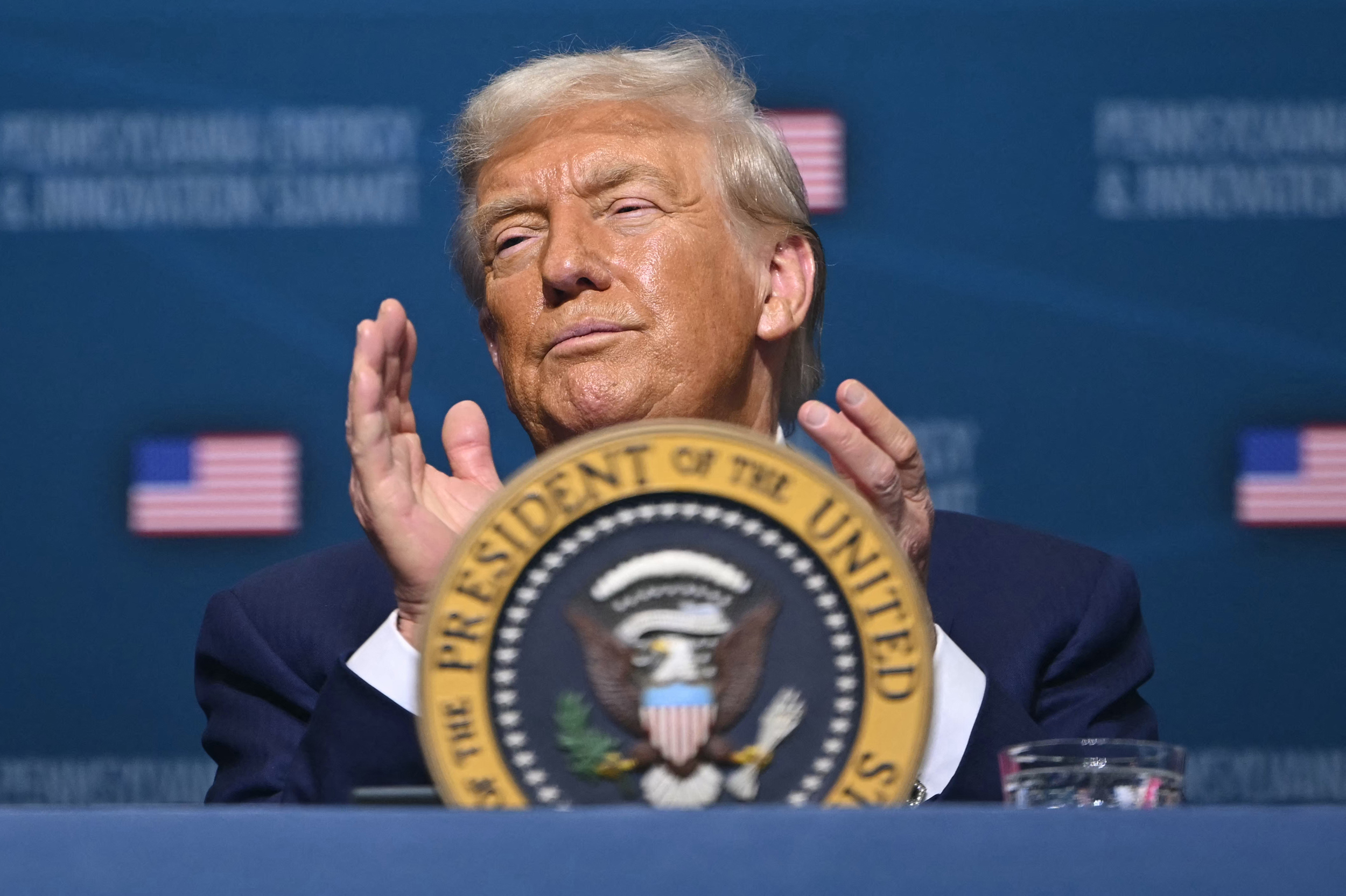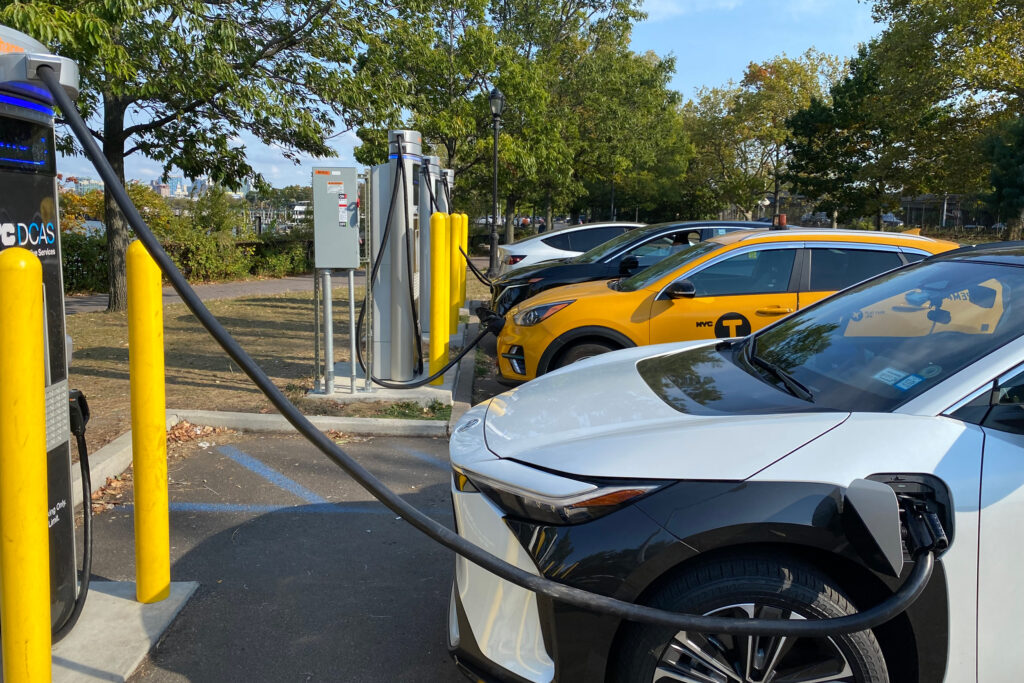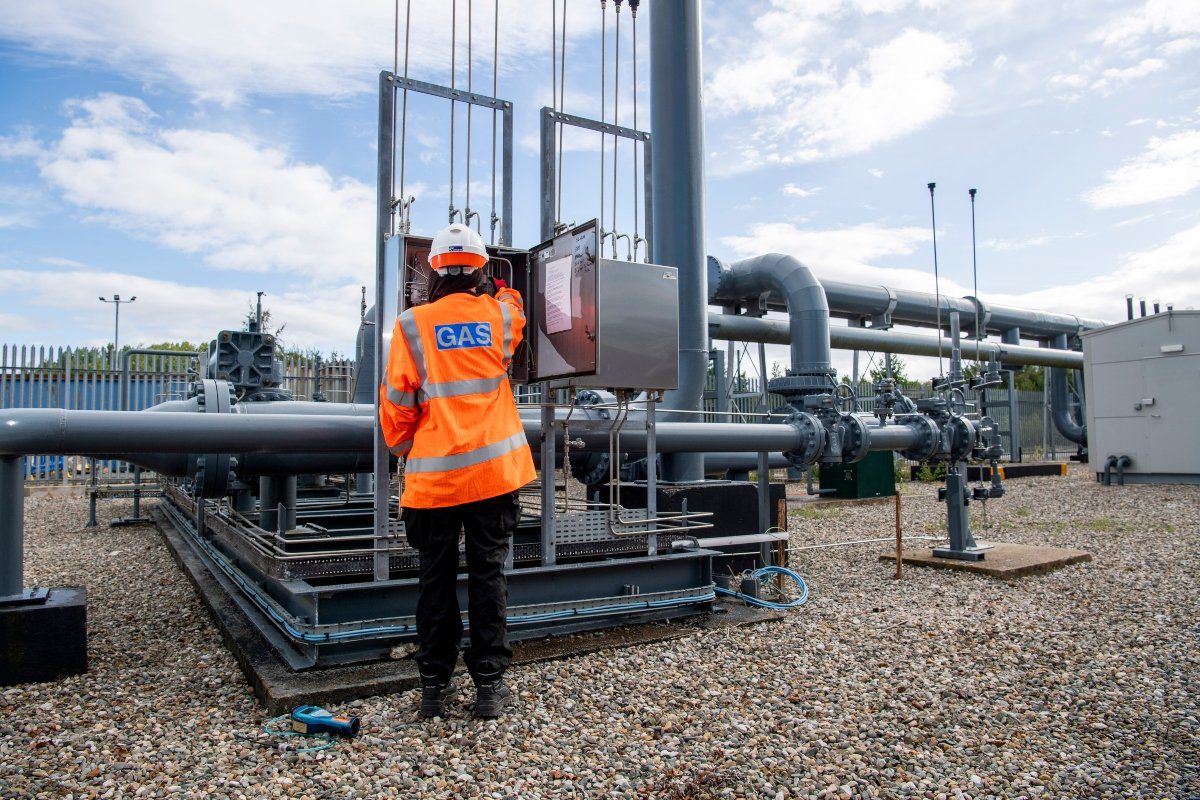In 2019, when the 450 million citizens of the European Union’s 27 member states last went to the polls to choose a parliament for the continent, youth-led climate activism was cresting. Hundreds of thousands of people marching in the streets of Berlin, Brussels, London, Paris and Vienna during the campaigning helped turn the EU parliamentary election into a referendum on climate action and preserving nature.
That strong grassroots support for pro-environment candidates and parties propelled the European Green Deal, as well as ambitious targets for reducing greenhouse gas emissions across all sectors to net zero by 2050 and a sweeping nature restoration law that requires member states to repair damaged ecosystems.
But five years later, as Europeans again go to the polls this week, an anti-environment backlash largely orchestrated and financed by fossil fuel companies and related industries is threatening some of those policies. Polls suggest that populist, rightwing and nationalistic parties seeking to slow climate action will win more seats in the June 6-9 election of the next 705-member EU parliament, which could slow their implementation.
We’re hiring!
Please take a look at the new openings in our newsroom.
See jobs
A solid far-right majority in the EU Parliament could “open a floodgate for really, really bad things,” said Ariel Brunner, director of the nonprofit conservation group BirdLife Europe. “That needs to be clear to everyone.”
“It’s exactly the same as in the U.S.,” he said. “In a worst-case scenario in the next few years, we could see a liberalization of pollution laws. We could see funding of environmental programs cut, we could see a halt on enforcement action, which would mean an upsurge in illegal activities.”
Even worse for the climate and environment, such a majority could try to pass legislation aimed specifically at blocking the energy and food systems transitions needed to slow global warming, which has already happened in some individual EU countries.
France just passed an agricultural law whose main purpose is to protect the existing agriculture model, which harms the climate and environment with oil-based fertilizers and pesticides, Brunner said. He cited a law passed by Italy’s far-right government to ban hypothetical meat alternatives that don’t even exist yet as an example of laws being considered by right-wing parties to try and “prevent eventual pro-climate laws.”
In areas like land use, impacts of policy changes can be swift, with long-term consequences, he said. “When you liberalize logging law, logging companies go into your last old growth forests and clear them all,” he said. “By the time the political cycle turns again, you have lost potentially hundreds of thousands of acres of forests that have taken hundreds of years to grow.”
In the case of agriculture, slowing the work of enforcement agencies means there is a bigger potential for toxic spills that lead to mass fish die-offs, he said. “On the ecological side, you can go backwards a lot, and very fast,” he added.
The political shift to the right has already eroded support for climate action in some of Europe’s centrist parties, with the result that some EU policies aimed at cutting emissions from agriculture have already been weakened
“It’s not just radical parties and what used to be called populist parties,” he said. “It’s explicit that there is a whole group of parties that are openly calling for a rollback and driving backward into the past. Populism has infected the living body of European democracy.”
Populism and Nationalism Go Global
Many of those parties made their intentions public in late April in Budapest at the Conservative Political Action Conference —CPAC Hungary 2024—declaring on the conference website that “the international right from Europe to America is joining forces for the elections.” The conference included sessions like “Wokebusters,” “Sovereignty Lives, Globalism Dies, “Save The West, Protect The Borders” and “Gender Zero.”
Taken together, the agenda for Europe is remarkably similar to Donald Trump’s Project 2025, which would cut environmental spending, gut climate policy and roll back regulations on polluting industries.
The many U.S. attendees at the self-described “third conservative jamboree of anti-globalist forces” included three Republican Congressmen—Andy Harris of Maryland, Paul Gosar of Arizona and Keith Self of Texas—who participated in sessions on rolling back environmental regulations and women’s rights. Two sitting European prime ministers, a former Australian prime minister and political leaders and advisers from Chile and Argentina attended, showing the global growth and cooperation of the populist and nationalist right.
The EU vote comes in a year with national elections in numerous countries that will affect Earth’s future climate, including votes in Mexico, India, the United Kingdom and the United States.
Since the last EU parliamentary election, there has been a global pandemic and the start of two brutal wars. Governments are trying to crack down on environmental activists as the climate crisis escalates and deadly weather extremes strike at a pace that, until recently, was not expected until after 2050. Several courts have ruled against governments for failing to protect citizens from climate harms.
That pressure cooker has boiled some of the starch out of international environmental collaboration, and the new electoral threats to EU climate policy could further weaken the already frayed fabric of the Paris Agreement because, according to the Intergovernmental Panel on Climate Change, meeting the goal of limiting human-caused warming to between 1.5 and 2 degrees Celsius above the pre-fossil fuel era requires more, not less, climate action.
Emergent populist and authoritarian-leaning parties are gaining strength and power in long-time centrist EU countries like Italy, the Netherlands and Sweden that for decades helped lead European climate efforts.

In late May, a think tank linked with Hungary’s right-wing, authoritarian government openly tried to challenge the EU consensus on climate action at a conference in Brussels, as reported by DeSmog Blog, with speakers attacking the EU’s 2050 net zero goal and touting their success in stigmatizing EU climate policies as harmful to a growing number of voters.
“I think pretty much everything is at stake in terms of the EU’s climate policies,” said Laura Horn, a political economist at Roskilde University in Denmark and a member of Scientist Rebellion. “If the polls are right, we will see this enormous turn to populism in the parliament. We’ve already seen that in several member state elections.”
Broadly, the EU’s right wing parties are ideologically similar to the populist, anti-science and anti-environment doctrine prevalent in the Trump-shaped GOP, she said. The financial links between those ideologies and fossil fuel industries are well-documented, she added.
In the U.S., fossil fuel industries contributed $6.4 million to Trump’s campaign in the past three months, as reported by the Washington Post, and he recently solicited more funding from fossil fuel companies in exchange for promises to promote oil and gas production and speed merger approvals.
Report Links Fossil Funding to Election Disinformation
Most recently, a new report from the Climate Social Science Network tracks corporate money flowing to anti-science think tanks and business associations in Europe that are producing a steady stream of propaganda disputing the severity of climate change, criticizing renewable energy and opposing environmental regulation, which is being disseminated by right wing social media channels in the lead-up to the EU election.
Some of it moves between the U.S. and Europe via the Atlas Network, which is funded in part by fossil fuel industries, other large corporations and right-wing foundations including Exxon and the Charles G. Koch Charitable Foundation.
The Atlas Network’s European Initiative aims to “liberate individuals across the continent” and wants to “restore economic competitiveness in Europe by removing burdensome regulations.”
Atlas Network funding has helped numerous think tanks on both sides of the Atlantic incubate a body of anti-science propaganda, including climate disinformation, said report co-author J. Timmons Roberts, executive director of the Climate Social Science Network and a researcher at Brown University.
The output from the think tanks are the talking points for populist and nationalist parties grouped under a far-right umbrella now trolling for votes in the EU election by scaring voters into thinking that climate action will force them to give up their cars, or eat insects and lab-grown meat.
“If we see an increase in right wing power at the level of the EU Parliament, which is what people are expecting, then we’re going to see a rollback, or at least a stalling, of European climate policy,” Roberts said.
Europe is the source of about 8 percent of current total global carbon dioxide emissions, and EU members’ promised reductions are the “best in the world” among developed countries, he said, making them critical to global climate action.


Dieter Plehwe, a political scientist at the Berlin Social Science Center and a co-author of the report, explains the parallels between climate denial and anti-science rhetoric in the U.S. and Europe in the economic context of neoliberal free market ideology.
“If you look at the European climate denial conferences organized by EIKE (a conservative think tank based in Germany), they share basically the same speakers and the same output,” he said. They promote what he described as radical libertarian economic values, including sometimes extreme austerity measures like shrinking welfare programs and dismantling and privatizing public goods and services, measures that have “always been part of the effort of the Atlas network.”
Several far-right European parties, including Austria’s Freedom Party, have links to Russia, which promotes and funds anti-science climate disinformation. And last week, European investigators started scrutinizing the staff of a Dutch member of the European Parliament as part of a broader investigation of Russian influence in the EU.
Where Would a Hard Right Turn Lead?
Horn said the conventional wisdom in political science is that “the losers of globalization start voting for populist and far-right parties.” Concerns about job security and socio-economic status make people receptive to the seemingly simple answers offered by those parties, including nationalistic anti-immigration policy proposals, she added. And “questions of identity,” as well as “who is shaping public discourse and how those are being communicated also affect voting,” she said.
Various strains of populist and far-right ideologies that gained power in individual European countries have already shifted the political window so far that some factions of centrist parties in the EU that previously supported urgent action to protect the climate are now backpedaling.
In their EU parliamentary campaigns, some German politicians in center-right parties are now openly calling for a rollback of an already approved, EU-wide 2035 target to essentially phase out internal combustion engines that they themselves previously supported.
This story is funded by readers like you.
Our nonprofit newsroom provides award-winning climate coverage free of charge and advertising. We rely on donations from readers like you to keep going. Please donate now to support our work.
Donate Now
The attacks on the EU’s climate policies are particularly egregious in the agricultural sector, said Venetia Roxburgh, EU program leader at InfluenceMap, a nonprofit watchdog group tracing industry promotion of unscientific policies for farming and industrial food production.
A report Roxburgh authored on those efforts was released last week, and she said the most relevant finding to the EU election is that policymakers in the largest center-right grouping in the current parliament, as well as that group’s candidates, “appear to have adopted narratives used by industry to oppose policies to tackle livestock emissions.”
She said the risk is that the meat and dairy sector is able to continue to exert such influence following the election, leading to the stalling of key policies to reduce emissions and make the EU’s food system more sustainable.
“This would mean the EU would not be able to fulfill its Green Deal goals of transforming the European food system,” she said. “And any further regulation of methane emissions from the agricultural sector, which contributes significantly to the EU’s greenhouse gas emissions overall, would be more unlikely.”
The campaigns by meat and dairy producers, and their industry associations, ”use a combination of strategic narrative building and detailed policy engagement that mirrors the tactics of the fossil fuel industry to obstruct climate policy,” the report noted. “Both sectors employ similar misleading narratives through strategic public messaging to sow doubt and undermine the need to tackle GHG emissions from the meat and dairy sector.”
Who Is Buying the Lies?
It’s not a question any more of whether fossil fuel companies and adjacent industries are intentionally misleading people, but of how they are getting away with it, said Reinhard Steurer, a climate policy researcher at the University of Natural Resources and Life Sciences in Vienna.
The answer, he said, is uncomfortable.
“If you lie to somebody, you need people on the other side who want to believe those lies,” he said. “Currently it seems to be the majority of society looking away or closing their eyes and wanting to hear bullshit stories.”


That’s allowed previously fringe populist and far-right parties to amass voters for the upcoming EU election, he explained.
“The problem behind all this is the multiple crises we are dealing with,” he said.
A pandemic, high inflation, wars and social conflicts about immigration have made people tired and feeling like “They just want things to go back to normal,” he said. “Now we scientists say well, there is no normal anymore. Of course, a majority doesn’t want to hear that. They just want to lash back and lash back.
”I see a lot of refusal to face reality because the stories the far right tells people are the more convenient stories, and so people get addicted until these stories of course crash into reality sooner or later. It takes a while but it will happen. But for now, those stories sound good and they run for elections with that storyline.”
Steurer said he is even more worried about the upcoming U.S. election.
“The U.S. is, indeed, a democracy under threat,” he said. “If Trump wins this election, I don’t know how the democratic system will survive this. So it’s really serious. It’s quite simple, either a majority sides with the rule of law and science, or, we will see a declining civilization.”

















